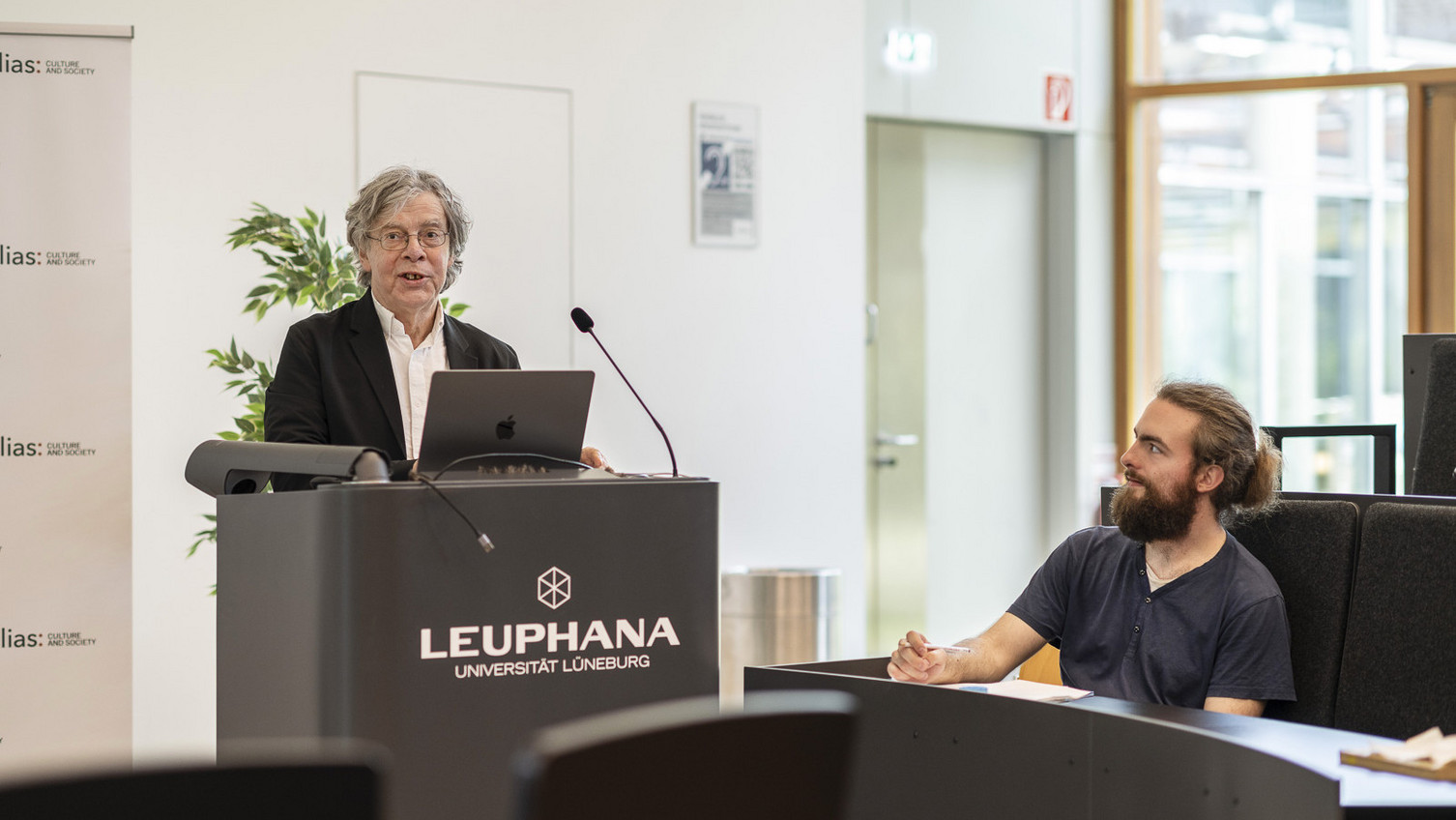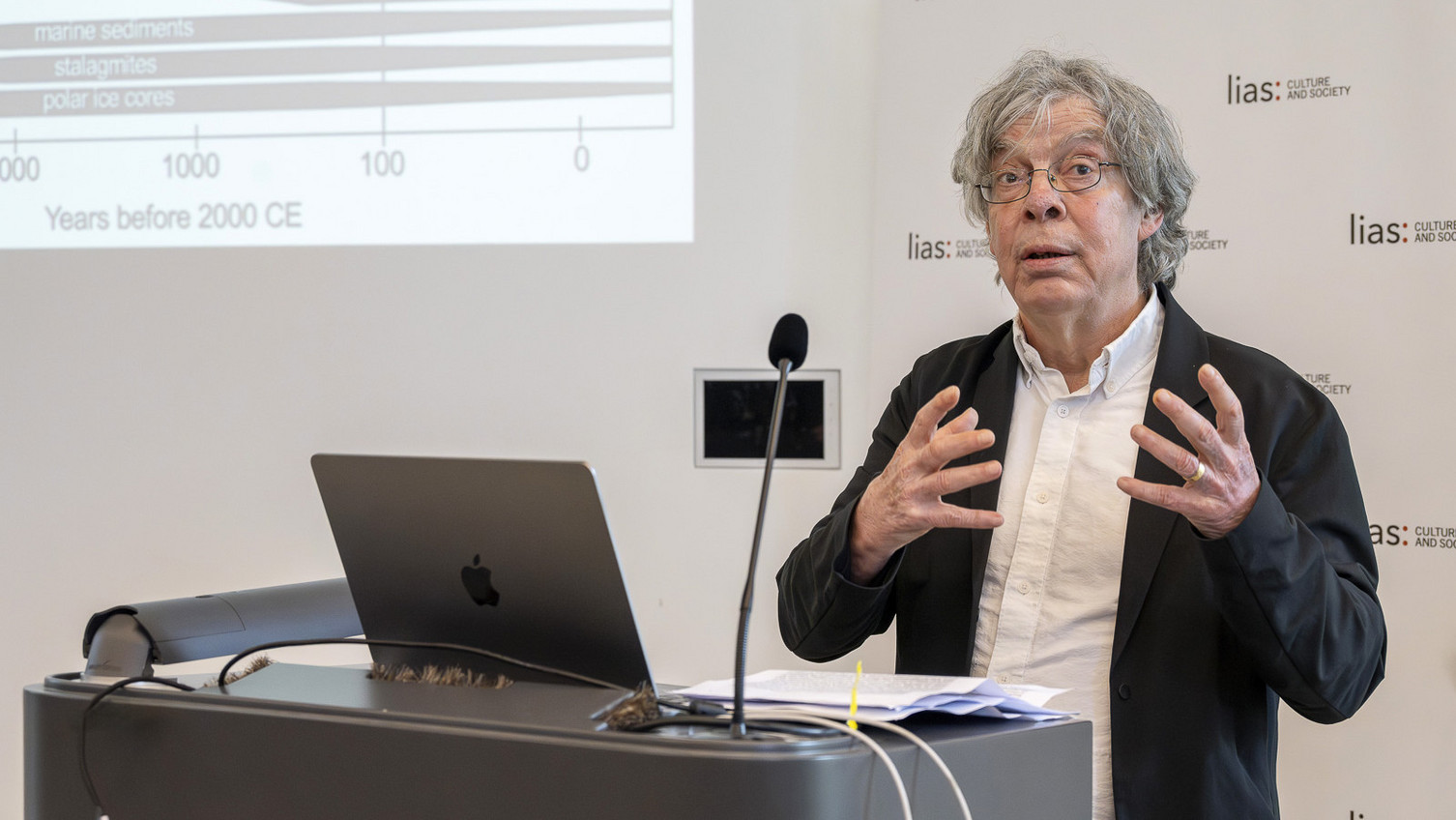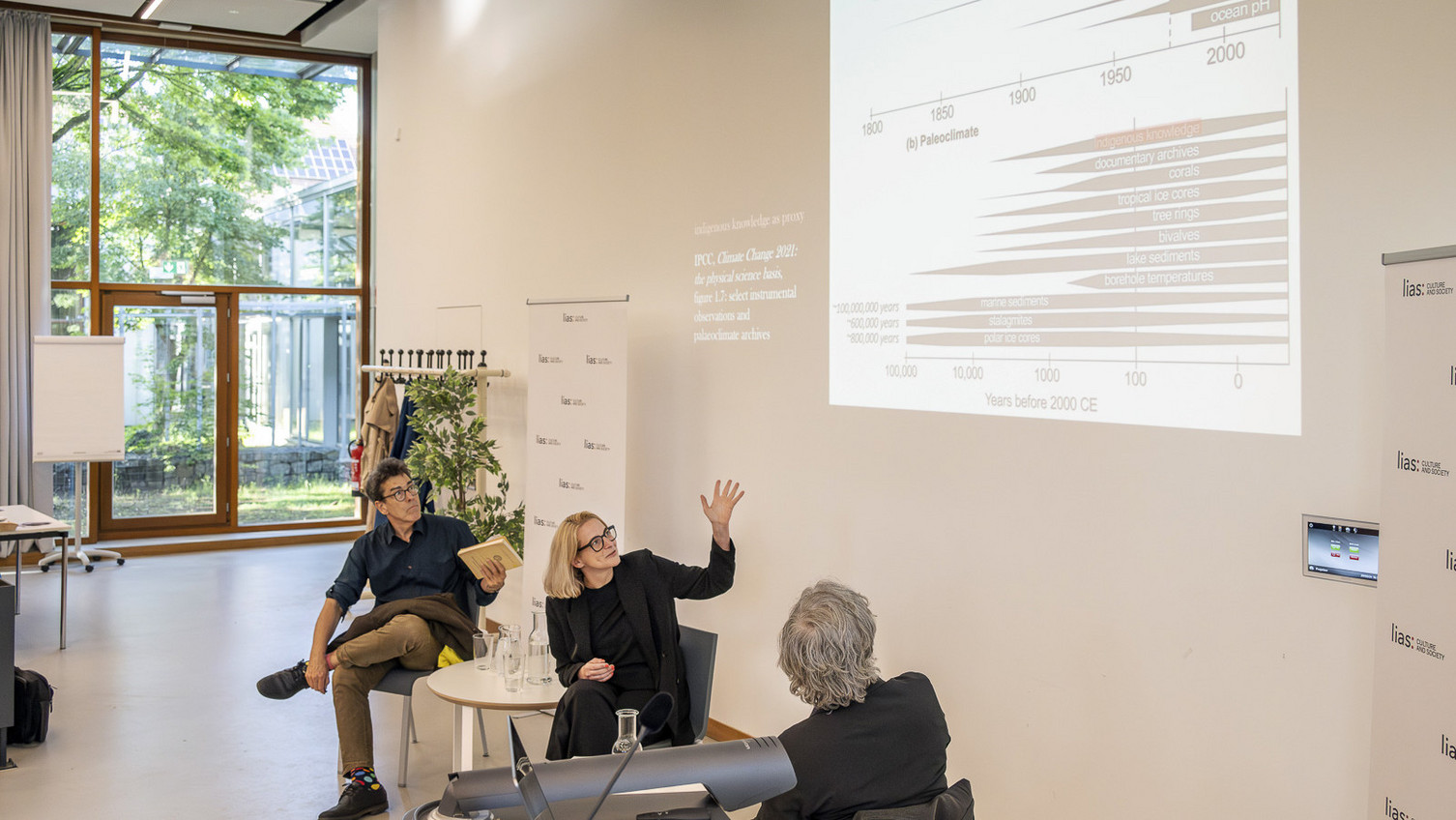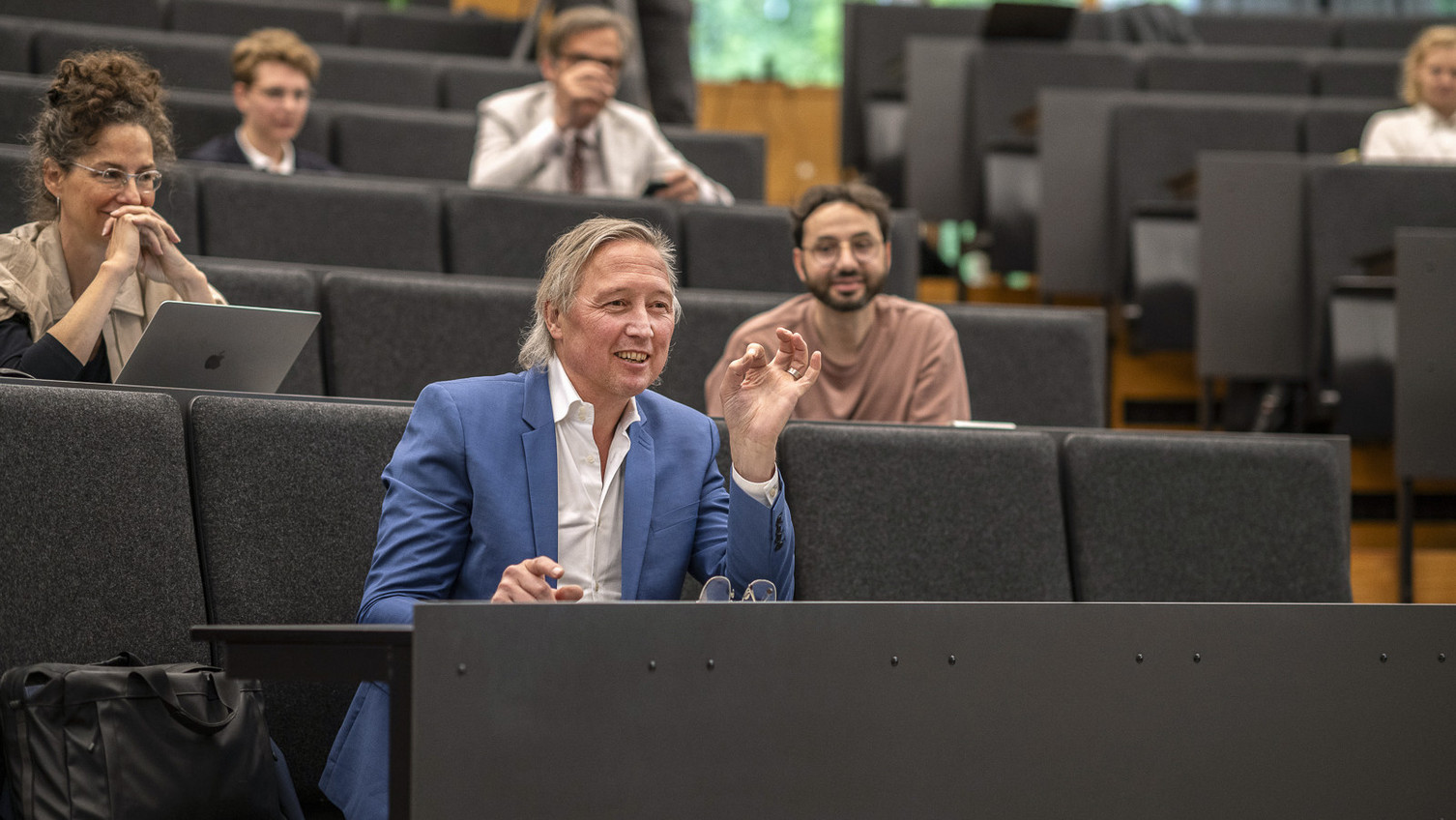The Invention of Climate
Colonial Natures and Modern Societies
2024-06-05 The Leuphana Institute for Advanced Studies (LIAS) in Culture and Society welcomed Simon Schaffer, Professor of History of Science at the University of Cambridge, for a lecture on the emergence of our current understanding of climate and its roots in colonialism. The discussants were Christina Wessely, Professor of Cultural History at Leuphana University Lüneburg and LIAS Senior Fellow Richard Drayton.
After an introduction by Richard Drayton, who emphasised the range of time periods and interdisciplinarity researched by Simon Schaffer, the LIAS-Guest spoke about the results of his project “Making Climate History”, in which he is involved. This project looks at 250 years of climate science, both from a scientific, cultural and economic perspective.
Schaffer identifies three moments during the onset of colonisation that have contributed significantly to our current understanding of “climate”. The first is directly attributable to European colonialism and warfare. Global trade networks, particularly in the Americas, the Mediterranean, China and South Asia, required the ability to record, predict and respond to weather patterns to drive economic and political expansion, not least by military means. Recording systems and observations thus developed in parallel with the disempowerment of indigenous populations. In this context, Schaffer added that we need to think about these instruments and their modern descendants today, as climate measurement began at the same time as climate change, which was triggered by the same actors, as early as the late 18th and early 19th centuries.
These developments led directly to the second moment, which Simon Schaffer called the meteorological period. The emergence of the natural sciences in the late 18th and early 19th centuries promoted knowledge of “meteorological geography” and made it possible to formulate the term “climatology” on the basis of chemistry, biology, mathematical physics, stellar astronomy, statistics, sociology and political economy. A new science had emerged.
The beginning of “climatology” was accompanied by a pronounced Eurocentrism, according to Schaffer, which equated distance with the past and, as is well known, delimited a concept of civilisation from indigenous inhabitants of distant continents - the “primitives” - which was tantamount to the invention of the “global South”. Schaffer's point here was the connection between history and genealogy, nature and alterity, and the expansive, militant ideas of those involved in climatology. For more distant regions, Europeans, lacking data, relied on proxies as indirect evidence of climate change, such as tree rings, ice cores, fossils, sediments and similar natural “archives”. Schaffer hypothesised that indigenous knowledge is still treated as a proxy today. Finally, Schaffer referred to the links between economic and knowledge policy and a model of climate development that conceals the very imperial and colonial conditions that have produced the climatology, of which the disregard of proxies as unreliable climate evidence is just one example.
Schaffer emphasised this once again in the discussion when Christina Wessely asked how indigenous knowledge compares to other knowledge on an epistemological level. According to Schaffer, this is an expression of the persistent colonial mindset, because in his view there is no difference. On the contrary, humanity needs the knowledge and practices of the indigenous people to deal with climate change in a sustainable way. However, Schaffer also included the knowledge of today's indigenous population, such as the knowledge of an Italian winegrower, which not everyone present agreed with.
An obvious discussion arose from the tendency towards activism in the environmental humanities. Schaffer criticised how quickly activist practices emerge in response to certain findings or theories without these practices being given time to develop. Furthermore, Schaffer criticised activism when the problematic “we” or subject takes centre stage rather than the object of discussion, i.e. nature. The question of how the “object” of climatology could be narrowed down and what role technology, such as artificial intelligence, could play in this was only touched upon.
Simon Schaffer, who succeeded in captivating the audience, concluded with the remark that we should not overrate the knowledge of the actors in climatology as something creative, while we underrate indigenous knowledge as “primitive”, because this would also underestimate their work.






